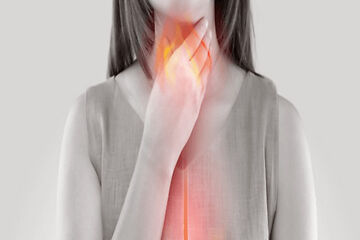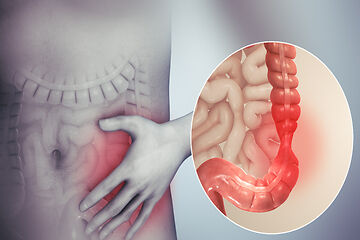What is IBD?

Inflammatory bowel disease (IBD) is an umbrella term used to describe disorders that involve chronic inflammation of your digestive tract.
There are two types of IBD.
1.Ulcerative colitis. This condition involves inflammation and sores (ulcers) along the superficial lining of your large intestine (colon) and rectum.
2.Crohn's disease. This type of IBD is characterized by inflammation of the lining of your digestive tract, which often can involve the deeper layers of the digestive tract.
What are the signs and symptoms of IBD?
Inflammatory bowel disease symptoms vary, depending on the severity of inflammation and where it occurs. Symptoms may range from mild to severe.
However, the possible signs that may help you out are:
- Diarrhea
- Fatigue
- Abdominal pain and cramping
- Loss of appetite
- Blood in your stool
- Unintended weight loss
Immediately contact your doctor if you notice any such signs.
What are the causes of IBD?
The exact cause of inflammatory bowel disease remains unknown. Previously, diet and stress were suspected, but now doctors know that these factors may aggravate but aren't the cause of IBD.
One possible cause is an immune system malfunction. When your immune system tries to fight off an invading virus or bacterium, an abnormal immune response causes the immune system to attack the cells in the digestive tract, too. Heredity also seems to play a role in that IBD is more common in people who have family members with the disease. However, most people with IBD don't have this family history.
Diagnosis of IBD
To diagnose IBD, your doctor will review your personal and family medical history, perform a thorough physical evaluation, and may recommend any of the following tests:
Some tests that are normally done are as:
- Colonoscopy to examine the large and small intestines.
- EUS (endoscopic ultrasound) to check the digestive tract for swelling and ulcers.
- Flexible sigmoidoscopy to examine the inside of the rectum and anus.
What are the complications of IBD?
A few of the comorbidities you may face with IBD are:
- Left untreated, Colon cancer. Having ulcerative colitis or Crohn's disease that affects most of your colon can increase your risk of colon cancer.Tell your doctor if your signs and symptoms aren't improving despite treatment for IBD.
Prevention of IBD
Preventing and treating illnesses that can become the risk factor for IBD is the best way to curb out it's complications. Make sure to change a few of your lifestyle habits and do regular physical exercise (not intense one). Talk to your doctor and take the help of a dietician who can suggest a decent diet to avert IBD. A diet is a healthy component of IBD treatment in Ayurveda!






